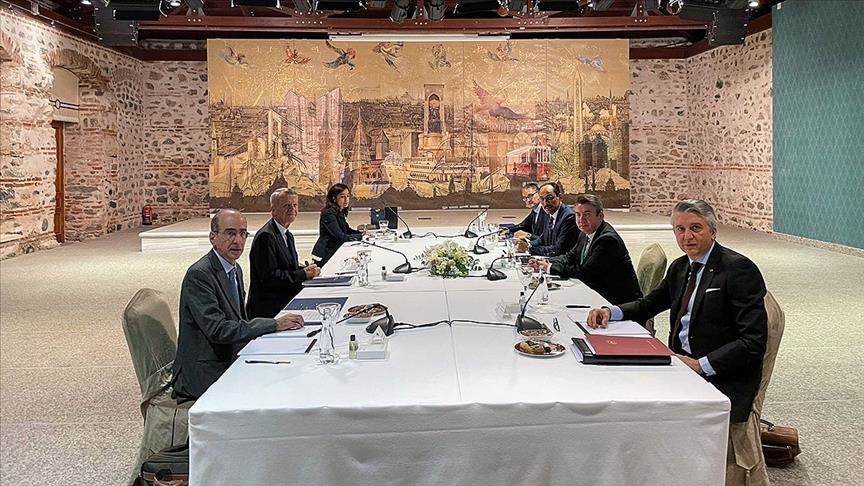
ANKARA
With several key issues dividing the neighboring countries, the first round of exploratory talks between Turkey and Greece in nearly five years concluded on Monday, according to diplomatic sources.
In the talks in Istanbul, top Turkish and Greek officials evaluated the issues from previous rounds – which ended in 2016 – as well as the current situation, recent developments, and possible steps to be taken, said the sources, who asked not to be named due to restrictions on speaking the media.
The parties agreed that Athens, the Greek capital, would host the next meeting.
On Twitter, Turkey's presidential spokesman Ibrahim Kalin underlined the importance of regional peace and stability.
"Under the strong leadership of our president, it is possible to solve all problems, including the Aegean, and we have the full will for this,” he wrote. “Regional peace and stability is in everyone's interest."
On Jan. 11, Turkish Foreign Minister Mevlut Cavusoglu invited Greece to resume the talks, demonstrating how Turkey favors dialogue, cooperation, and resolution.
On Jan. 20, Greek Prime Minister Kyriakos Mitsotakis said his country would join the talks with "optimism and confidence."
The dialogue is also expected to positively contribute to Turkey's relations with the EU.
In an earlier statement, European Council President Charles Michel also welcomed the resumed talks.
Saying members of the EU Council would discuss relations with Turkey again in March, an EU official said the bloc is "looking forward to progress resumption of exploratory talks between Turkey and Greece as well as the Cyprus settlement process," referring to the divided island.
Exploratory talks between Turkey and Greece, meant to find fair and equitable settlements to issues in the Aegean, began in 2002.
After the 60th round of talks in March 2016, Athens suspended the meetings.
Bilateral talks continued in the form of political consultations, but did not return to the exploratory framework.
The talks were expected to also focus on bilateral disputes, including maritime boundaries and drilling rights in the region.
Turkey, which has the longest continental coastline in the Eastern Mediterranean, has rejected the maritime boundary claims by Greece and the Greek Cypriot administration, stressing that these excessive claims violate the sovereign rights of Turkey and the Turkish Cypriots.
Ankara last year sent several drill ships to explore for energy in the Eastern Mediterranean, asserting its rights in the region, as well as those of the Turkish Republic of Northern Cyprus (TRNC).
Turkish leaders have repeatedly stressed that Ankara is in favor of resolving outstanding problems in the region through international law, good neighborly relations, dialogue, and negotiations.
* Writing by Jeyhun Aliyev
Anadolu Agency website contains only a portion of the news stories offered to subscribers in the AA News Broadcasting System (HAS), and in summarized form. Please contact us for subscription options.







